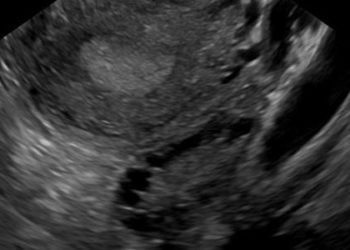Gut bacteria respond to daily rhythms and influence weight control
1. The daily rhythmic fluctuations of intestinal bacterial populations in both mice and humans were disrupted by changes in sleep, and in some cases, feeding patterns.
2. Such disruption of the bacterial fluctuations, as experienced by jet-legged humans, caused weight gain and glucose intolerance.
Evidence Rating Level: 2 (Good)
Study Rundown: Collectively, the numerous bacterial species that inhabit the human intestine are referred to as the ‘microbiome’. Although it is widely recognized that distinct individuals have different species that constitute their unique microbiome, it remains unclear how the microbiome is regulated within an individual over time. Researchers recently began to investigate how the populations of distinct bacterial species vary with time. Surprisingly, they found that the composition of the microbiome fluctuated over the course of a 24-hour cycle, with some bacterial species exhibiting higher numbers at night and others during the day. Changes in the feeding time of mice were found to disrupt these bacterial growth cycles, suggesting that feeding schedules regulate the rhythmically dynamic composition of gut bacteria.
This study investigated the effect of changing sleep cycles on the makeup of the microbiome. They found that disrupted sleep cycles of both mice and humans was sufficient to alter the microbiome. Moreover, this ‘jet-lagged’ microbiome facilitated weight gain and a reduction in glucose tolerance in mice. Although the experiments using human samples must be considered preliminary, and none of the feeding-cyle studies were performed in humans, this work highlights the translational potential of modulating the microbiome to treat common conditions such as obesity. As a result, the authors speculate that one of the contributing factors in metabolic syndrome and obesity may be changes in the bacterial species inhabiting the intestine. For clinicians, this study highlights the great promise that systematically targeting the microbiome may have in future weight-loss or pre-diabetes therapies.
Click to read the study in Cell
Relevant Reading: The human microbiome: at the interface of health and disease
In-Depth [animal study]: Thaiss and colleagues have applied a bioinformatics-based approach to analyze large scale changes in the microbiome of mice. This approach allowed the authors to examine the entire microbiome by analyzing stool samples taken from mice or humans. The found that the size of different bacterial populations changed in a predictable way over a 24-hour cycle. Importantly, the authors noted that changing the feeding or sleep schedules of mice disrupted these bacteria rhythms.
Observing that the microbiome responded to perturbations in the mouse’s daily sleep or feeding schedules, the authors hypothesized that these changes may play a part in producing metabolic disturbances that occur in response to chronic jet lag. To answer this question, researchers transplanted the microbiome of a jet-lagged mouse into a ‘germ-free’ mouse (which lacks its own microbiome). Remarkably, this was sufficient to cause the ‘germ-free’ mouse to gain weight similarly to the jet-lagged mouse. Finally, they extended their results across species by collecting fecal samples from human travelers who had become jet-lagged by an international flight. Following transplantion of the microbiome from the human samples into a new cohort of ‘germ free’ mice, researchers observed weight gain and glucose intolerance in the recipient mice.
Image: PD
©2012-2014 2minutemedicine.com. All rights reserved. No works may be reproduced without expressed written consent from 2minutemedicine.com. Disclaimer: We present factual information directly from peer reviewed medical journals. No post should be construed as medical advice and is not intended as such by the authors, editors, staff or by 2minutemedicine.com. PLEASE SEE A HEALTHCARE PROVIDER IN YOUR AREA IF YOU SEEK MEDICAL ADVICE OF ANY SORT.




![Triple-combo chemotherapy improves survival for metastatic colon cancer [TRIBE study]](https://www.2minutemedicine.com/wp-content/uploads/2014/10/640px-Cyclophosphamide_iv-75x75.jpg)



